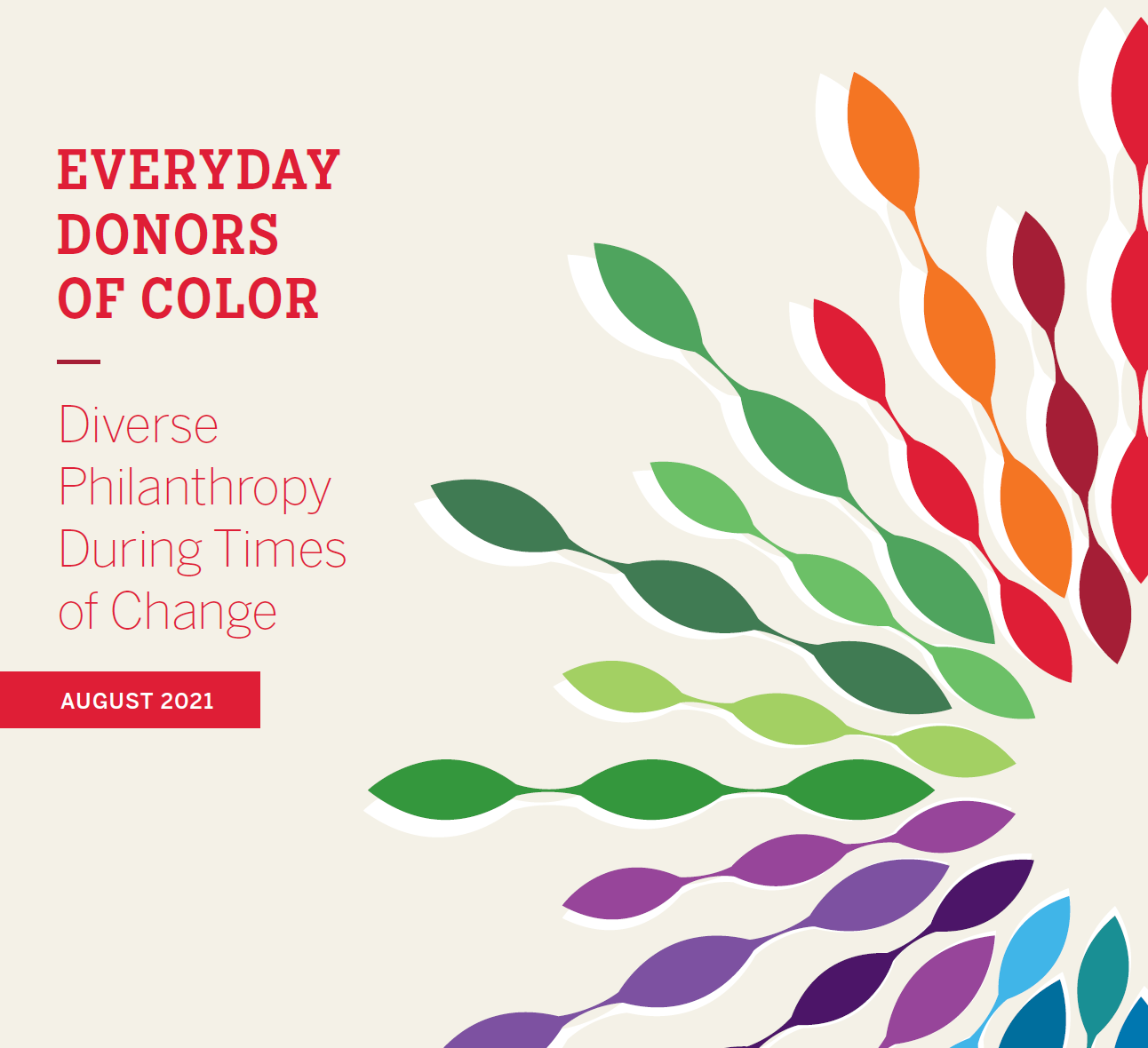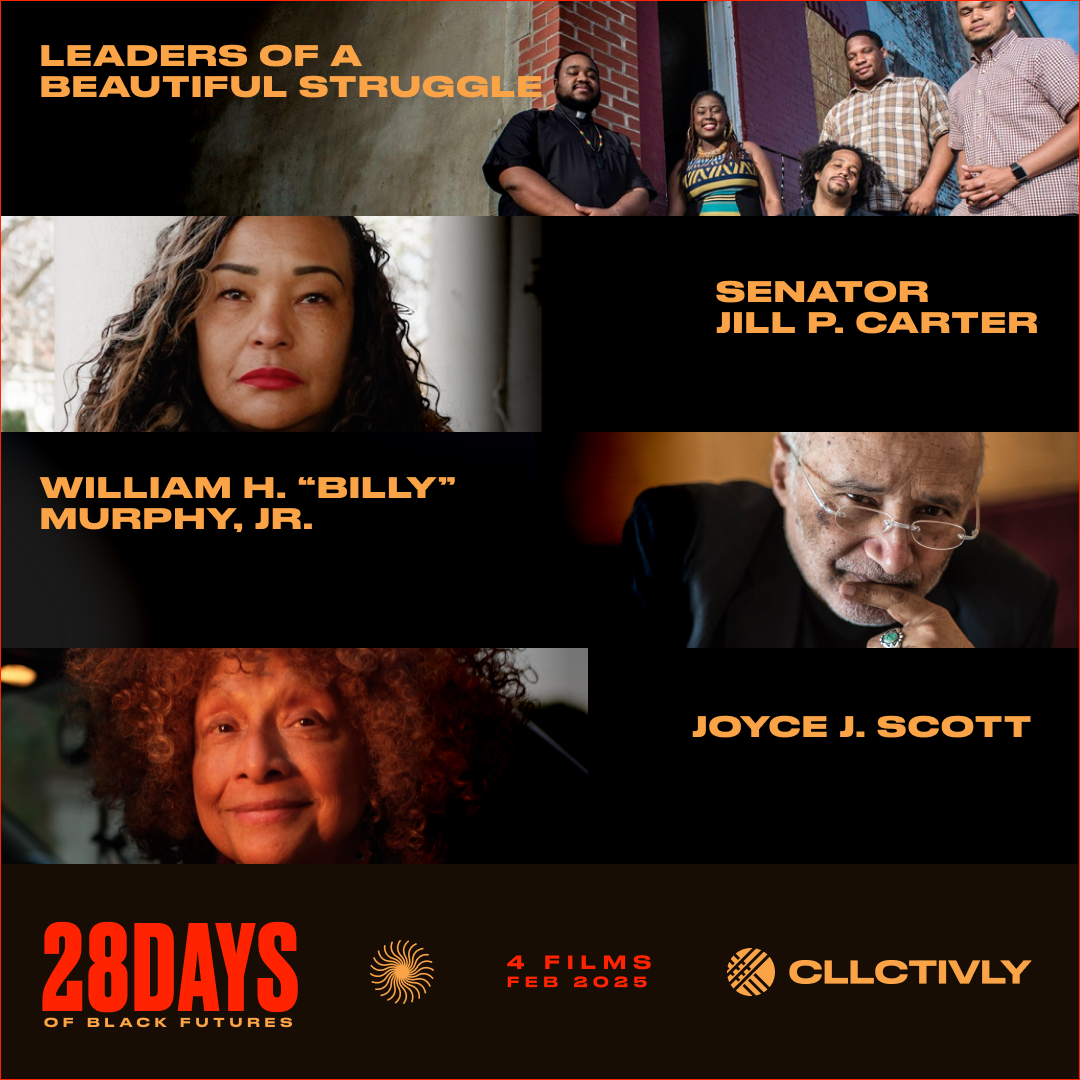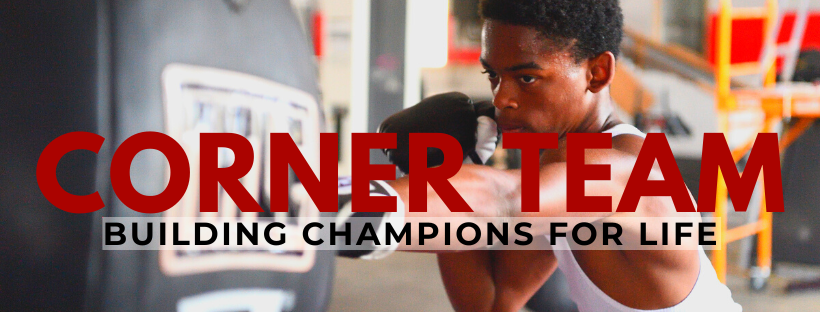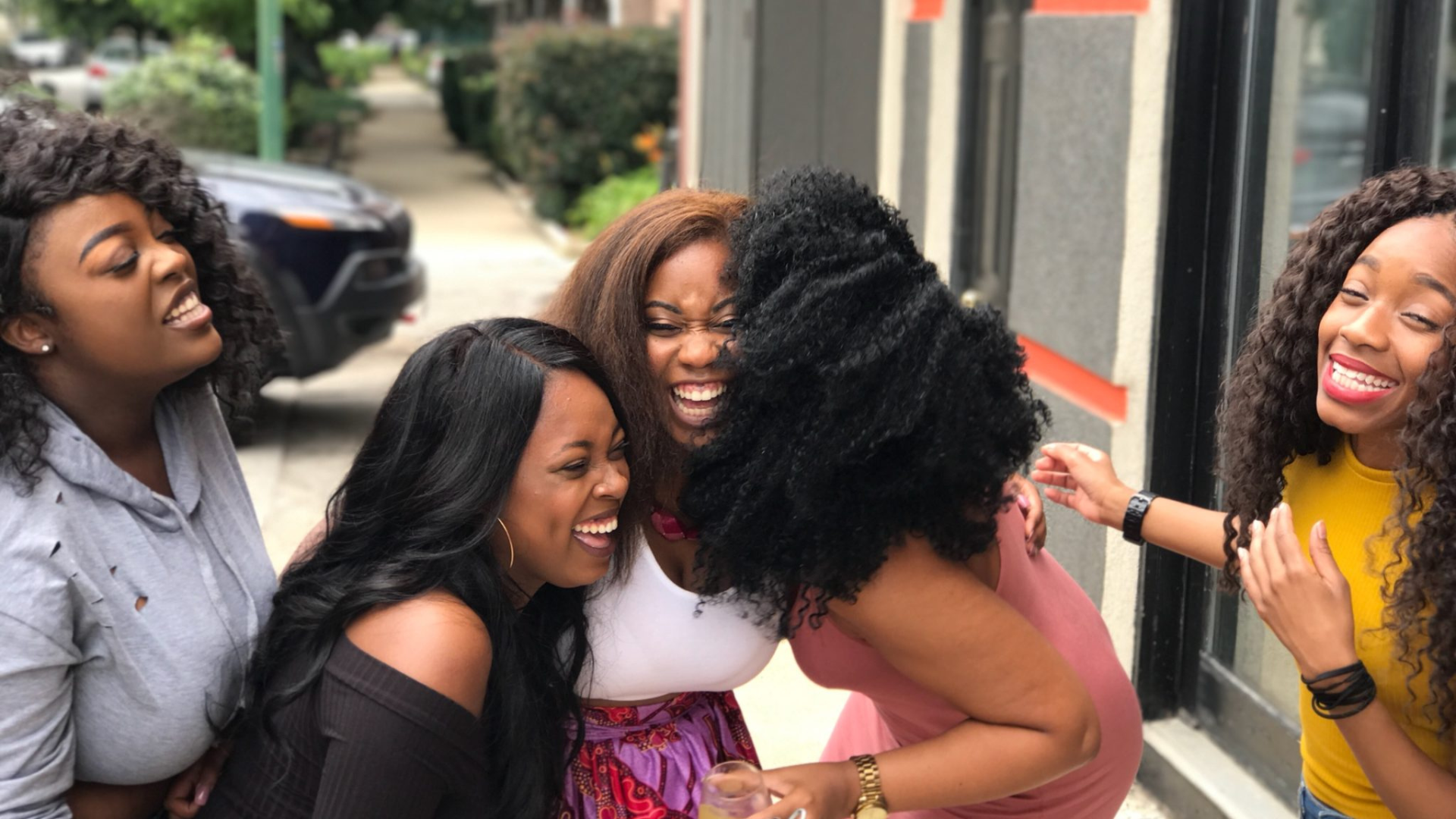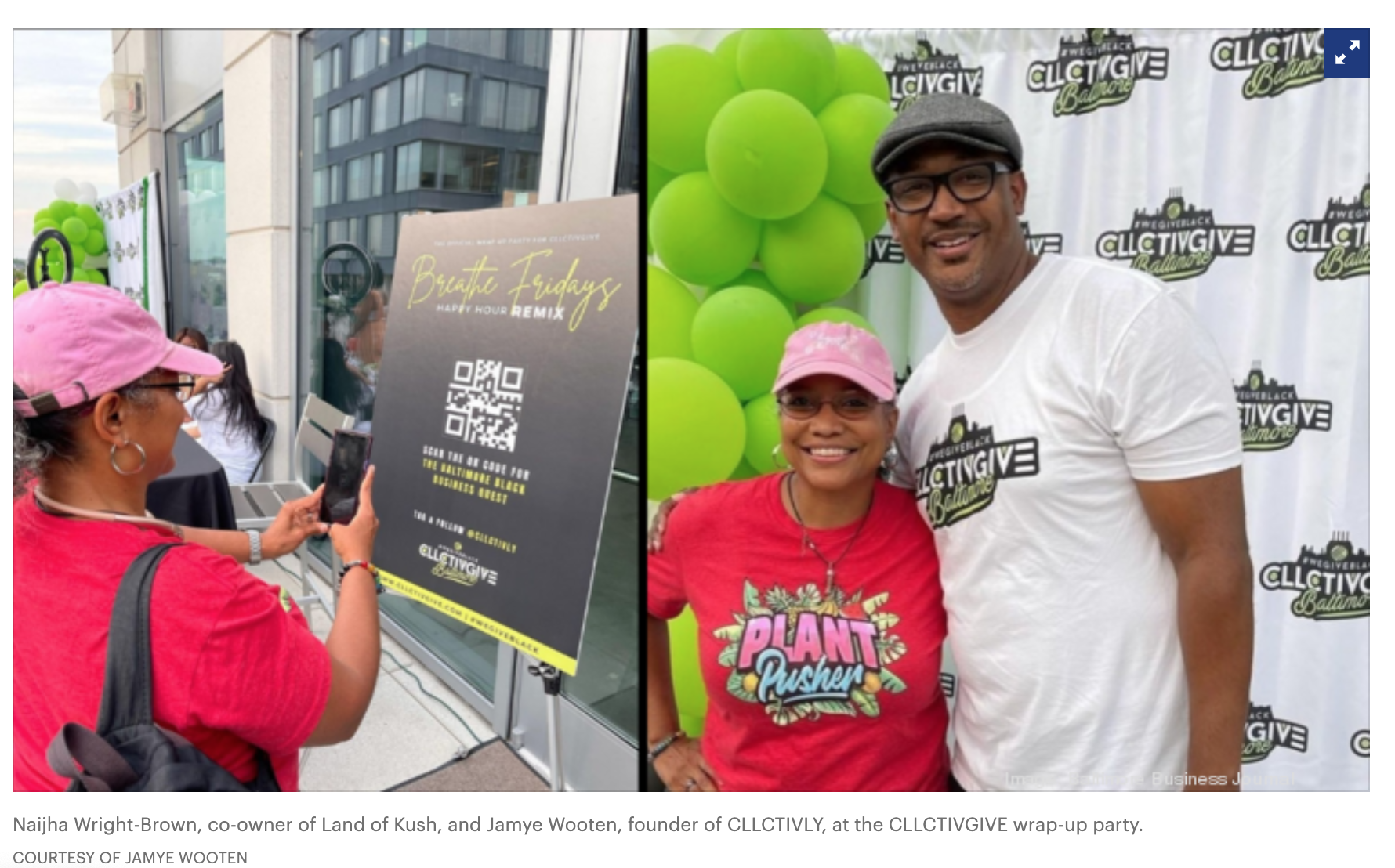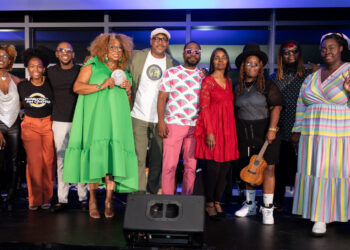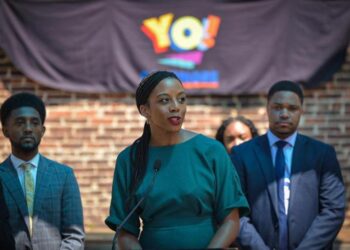In a year when giving to support racial and social justice was a major focus in philanthropy, everyday donors of color didn’t always get the attention they deserved. A new report from the Indiana University Lilly Family School of Philanthropy shows how critical these donors have been in driving giving to those causes and influencing the giving landscape. (Chronicle of Philanthropy)
Case Study: CLLCTIVLY – Everyday Donors of Color Report
In January 2019, Jamye Wooten, an established digital communication expert and social impact strategist, launched CLLCTIVLY as the first place-based social change organization to foster collaboration, increase social impact, and amplify the voices of Black-led organizations in Greater Baltimore. The organization’s mission is “to end fragmentation and duplication of programs, to learn from and about each other, and to be a resource for the Greater Baltimore community that seeks to find, fund and partner with Black social change organizations.” CLLCTIVLY fills a unique niche in the philanthropic sector by mobilizing resources to serve Black-led organizations.
CLLCTIVLY’s Beginning
The origin story of CLLCTIVLY dates back to the 2015 Uprising sparked by the tragic death of Freddie Gray in the custody of the police. Wooten joined with a coalition of grassroots activists, faith-based leaders, and concerned citizens to found Baltimore United for Change. Just days after the Baltimore Uprising, he established a skills bank as an “on ramp” for community members looking for ways to serve. From mental health professionals to graphic designers, over 260 individuals and organizations responded to the call to serve and joined the skills bank. As foundations began to inquire about Black-led organizations serving the Greater Baltimore area, Wooten launched an asset-directory to search for these organizations based on their area of service and target neighborhood. The directory was launched in 2019 as the first phase of CLLCTIVLY’s community-based platform.
CLLCTIVLY’s Foundation of Black Giving
CLLCTIVLY builds upon over 200 years of the Black Church tradition of giving and a long history of cooperative movements within the Black community (Lincoln & Mamiya, 1990; Gates, 2021; Carson, 1993; Nembhard, 2014). Growing up in the church, Wooten watched the ways church members pooled resources to meet the needs of the community. As the former director of the Collective Banking Group (CBG), Wooten took note of the ways its founder, Rev. Dr. Weaver brought business sophistication to the traditions, rituals, and technology of the Black Church to mobilize over 200 congregations in Prince George’s County to pool resources to meet the needs of their members and the broader community (Shanks, Boddie, & Wynn, 2014). Like the Black Church and Black American cooperative movements, CLLCTIVLY uses an asset-based framework. It draws upon the strengths and local assets of Black-led organizations as the primary building blocks for sustainable giving and community development. CLLCTIVLY extends Civil Rights activist Ella Baker’s model of decentralized movement building based on participatory democracy by adding new technologies like social media (Miller, 2016). To ensure sustainable change, Wooten grounds this work in the seven Nguso Saba principles of Kwanzaa: umoja (unity), kujichagulia (self-determination), ujima (collective work and responsibility), ujamaa (cooperative economics), nia (purpose), kuumba (creativity), and imani (faith) (Johnson, 2001). These principles are integrated into all of CLLCTIVLY’s projects to build an ecosystem that operates from shared principles and values.
Donors Response to Giving to Racial Equity Causes
At the onset of the coronavirus pandemic and the racial unrest following the murder of George Floyd, CLLCTIVLY was well-positioned as a source for those seeking Black-led organizations aligned with their values to come alongside to support and fund. With a database of over 140 Black-led organizations, Wooten launched Baltimore Black-led Solidarity Fund to provide “no strings attached” micro-grants to support organizations and businesses that may have had to suspend programming due to the pandemic. In 2020, Raven defensive end Calais Campbell gave $125,000 in partnership with the Rockefeller Foundation’s support of $75,000 to help CLLCTIVLY expand economic opportunities for Baltimore’s Black-led organizations during the pandemic. In general, eighty percent of CLLCTIVLY’s funding comes from foundations. Of these foundations, ninety percent have Black professionals in senior positions. The remaining funding comes from individuals.
Mechanisms Facilitating Giving to Racial Equity Causes
Wooten designed CLLCTIVLY as an ecosystem with six phases: asset map/directory, amplify/ multimedia project, skills bank, strategic partnerships/marketplace, social impact institute, and funds for black futures. So far the most robust phases of the ecosystem are the asset map/directory with 140 Black-led organizations, the Funds for Black Futures projects, and the Amplify projects. Sparked by the increased needs during the pandemic, CLLCTIVLY has created the Baltimore Black-led Solidarity Fund and a series of other ways to raise funds and to support Black-led organizations. The Black Futures Micro-Grant is a monthly participatory grantmaking event that identifies winners through a community voting process based on a best 3-minute video. Each month there are two winners. The first-place winner receives $1,000 and the runner-up receives $500. All participants gain visibility that typically attracts new opportunities and resources including speaking engagements, new business, and volunteers. To date, $75,000 has been awarded to over 50 grantees. CLLCTIV GIVE is an annual day of giving held in August set aside to raise funds for Black Future projects. In 2019, CLLCTIVLY raised $5,000 in 24 hours and in 2020, $56,000 was raised. Black Futures 360 Giving Circle connects people with common causes to pool their time, talent, and money to support Black-led organizations with $360each year. Currently, there are about 6o members in the giving circle with $25,000 fund. Got Your Back is CLLCTIVLY’s new guaranteed basic income, social capital, and social network campaign to support women changemakers. In partnership with a community of women changemakers and entrepreneurs, an individual will be integrated into this new community and supported with a $2,000 stipend toward living expenses for 12 months. According to Wooten, most philanthropy invests in projects and programs, instead CLLCTIVLY invests in people to make sure they are whole and have what they need to dream. This fall, CLLCTIV SOUP will be added as a micro-granting dinner series to celebrate and support Black-led social change organizations. Attendees will give a $10 donation and receive soup, salad, bread and a vote for one of four leaders sharing a 4-minute presentation. The winners will take home half of the funds raised and all presenters will have an opportunity to network and share resources with attendees from across the city.
The Amplify projects—CLLCTIV CONVERSATIONS, CLLCTIV Sound, and CLLCTIV events—seek to change the narrative of Black giving while raising awareness of the work of Black-led organizations in Greater Baltimore. CLLCTIV CONVERSATIONS features monthly speakers and community conversations highlighting topics that reimagine Black Philanthropy, Solidarity Economy, Racial Equity, and more. CLLCTIV Sound is a 10-month Artist-in-Residence program supporting Black artists with a $10,000 stipend, a multimedia team, coaching, and professional development provided in partnership with SunSpot Studios. The program will culminate with a celebration and reunion roundtable highlighting the journey of the artist(s). CLLCTIV events like Baltimore RISE, a three-day
entrepreneurial rapid ideation skill share event offers opportunities to partner with local businesses like Mindgrub and features the ideas of other entrepreneurs.
Tools and Techniques Facilitating Giving to Racial Equity Causes
Wooten has established CLLCTIVLY as an evolving ecosystem and 100% participatory grantmaking model for Black-led organizations and Black communities in Greater Baltimore to participate in the grantmaking process (Gibson, 2017). CLLCTIVLY primarily leverages the technology of social media to build its network of over 15,000 subscribers. Using its website, Facebook page, Instagram, and Twitter account, CLLCTIVLY mobilizes resources through crowdfunding as well as crowdsourcing information to share the stories, new ideas, services and goods generated by Baltimore’s Black-led organizations and their leaders. Another valuable tool for this work is storytelling. Through CLLCTIVLY’s videos and other Amplify projects, a narrative-changing, multimedia storytelling process is used to center the brilliant work of Black-led organizations. Networking, conversations, and relationship building are also essential elements of this work. This relational work provides the time and space to foster healing and build the trust needed for Black solidarity and community ownership of this work.
Conclusion
While the dominant grantmaking model remains a hierarchical and data-driven, evidence-based process, Wooten has created a model that invites foundations to invest in Black-led organizations like they “want us to win” and “really believe in the work that we’re doing.” He is optimistic that the participatory grantmaking process elevated by CLLCTIVLY along with the shared power with community members in the decision-making process can serve as a model for other place-based giving. According to Wooten, this kind of grantmaking can help move us closer to racial equity.
Stiffman, Eden (2021, August 25). Chronicle of Philanthropy. Diverse Donors Led the Shift to Social- and Racial-Justice Giving in 2020, New Report Says
